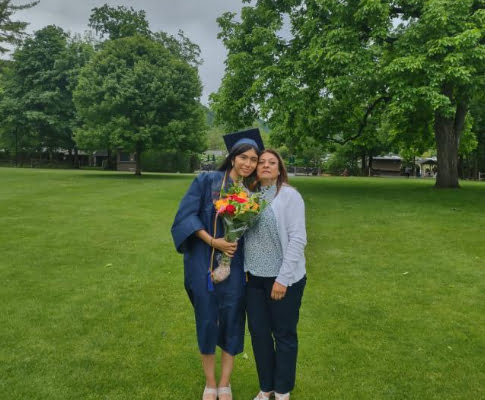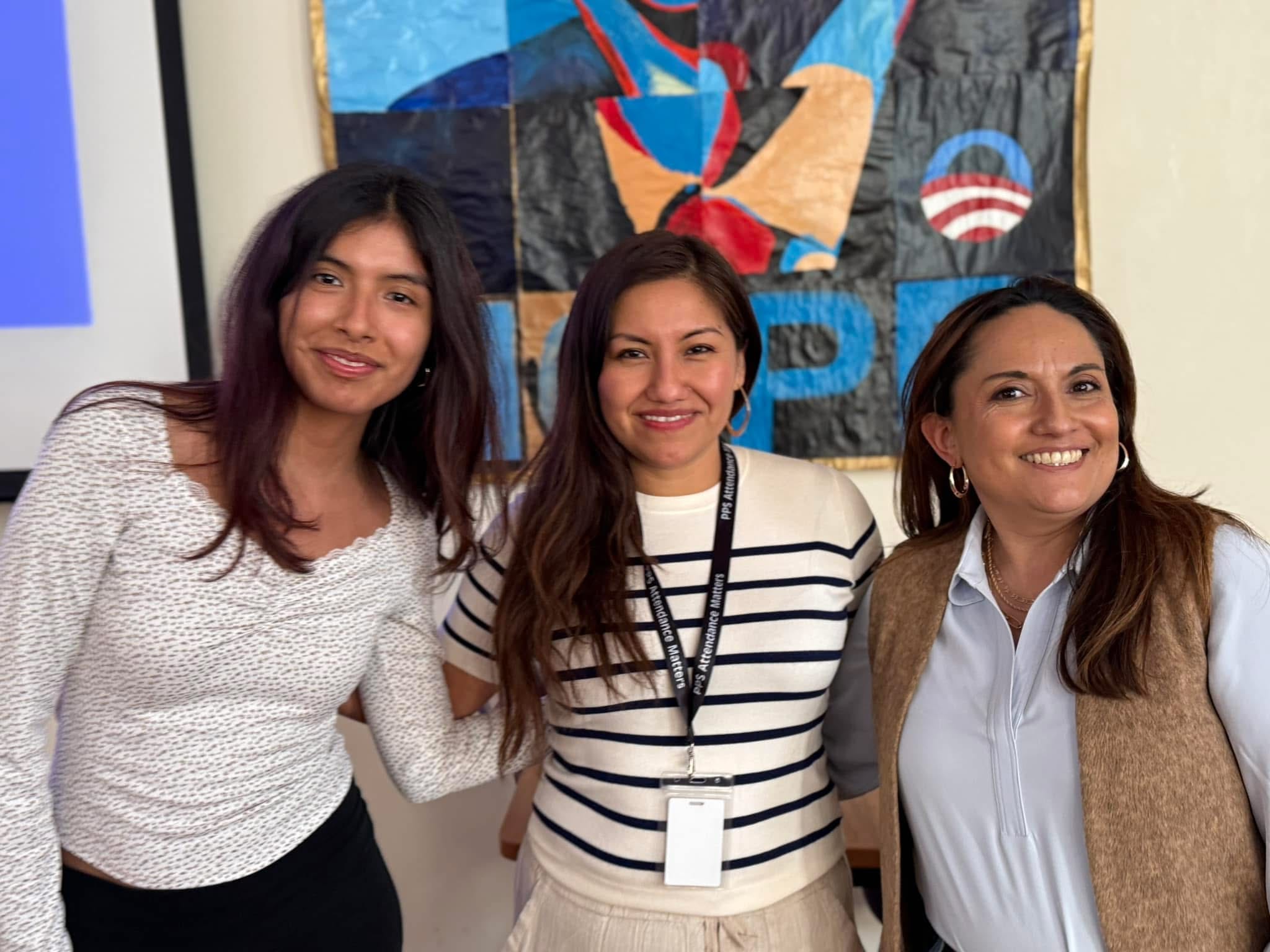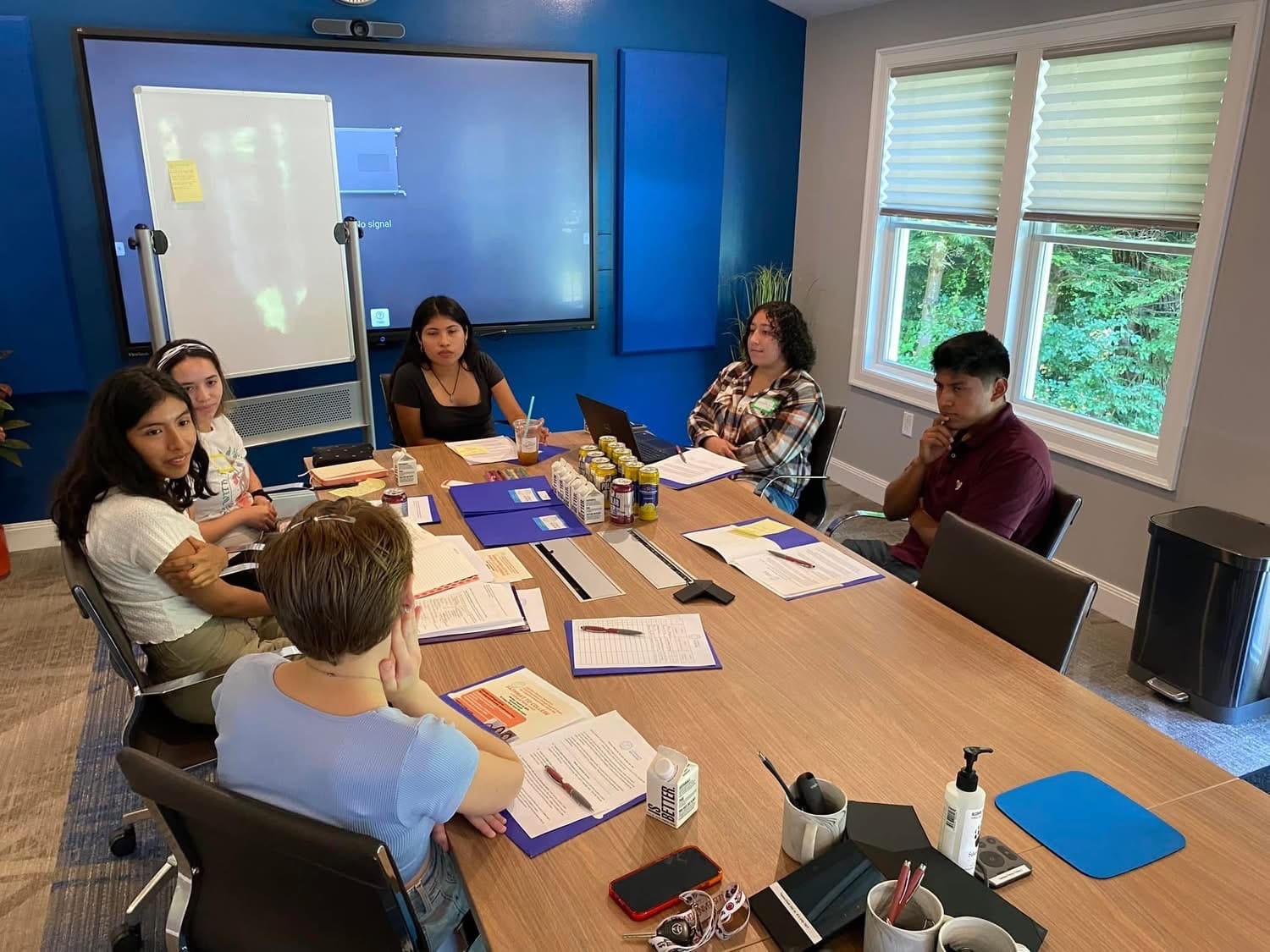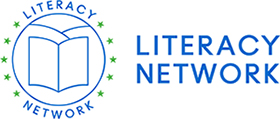In 2023, LitNet began to commit to delving deeper into our mission of “transforming lives.” We continue to serve newly arrived Berkshire County immigrants, as well as those who may have been here for some time, interested in learning or bettering their English language skills; we became more cognizant that some of our learners had been here for many years and now had children who were approaching adulthood and were uncertain about the opportunities that lay ahead for them.

LitNet’s First-Generation College Coordinator
Having graduated from high school in 2023, Deisy came on board to be our program’s founding partner, one with firsthand experience with the path to college as a first-generation student. Experienced in the application process, the obstacles, and where she could have used extra support, Deisy set about to create and deliver workshops for first-generation college hopefuls and their families to help smooth their experience.
Deisy’s initial efforts included sharing her knowledge of the community’s needs and working in partnership with the LitNet Education Team and the LitNet First-Generation College Liaison Committee. She also formed the LitNet First-Generation Council, made up of peers who are also first-generation college students or high school seniors on their path to college, to plan for relevant workshops and support. In her two years in the role(2023-2025), Deisy paved the way forward with many important and creative ideas and related programs.


LitNet’s definition of what it means to be first-generation:
While the federal definition of a “first-generation college student” means a person whose parents did not complete a baccalaureate degree, many schools have their own definitions. Some institutions reserve resources to serve both first-generation and low-income students and commonly use the acronym FGLI. LitNet takes a wide-ranging definition of who we are serving when we talk about the First-Generation College Project. We aim to serve students (and their family members) who do not have the benefit of an in-family role model with first-hand experience of the U.S. higher education system, and/or students who do not have the resources of other students. This could mean:
- Students whose parents are immigrants, even if those parents have college degrees in their home country
- U.S.-born students whose parents did not attend or complete college
- Students who speak a language other than English at home
- Low-income students
- Anyone who needs a detailed introduction and breakdown of the U.S. higher education system beyond what is traditionally offered.

